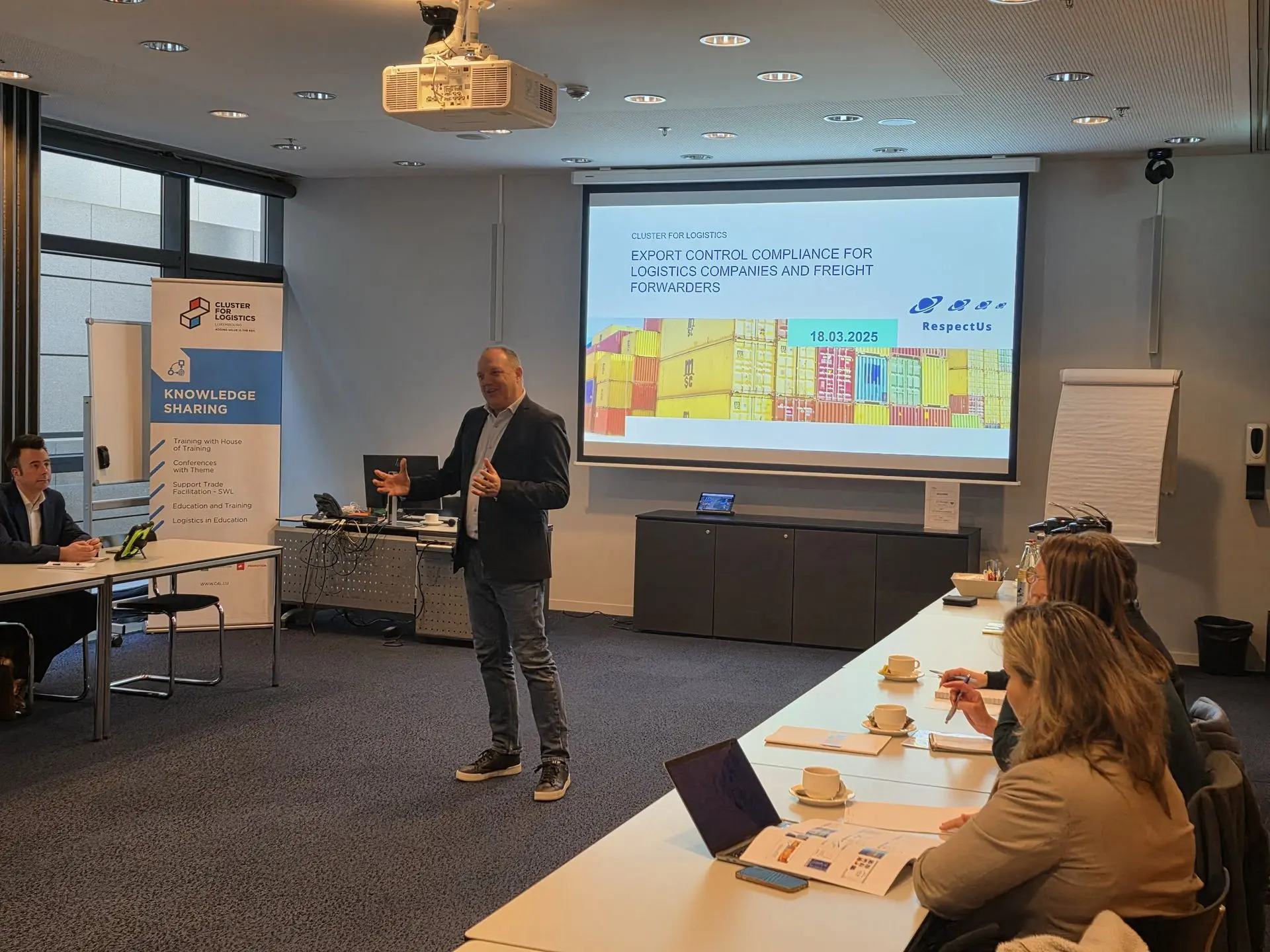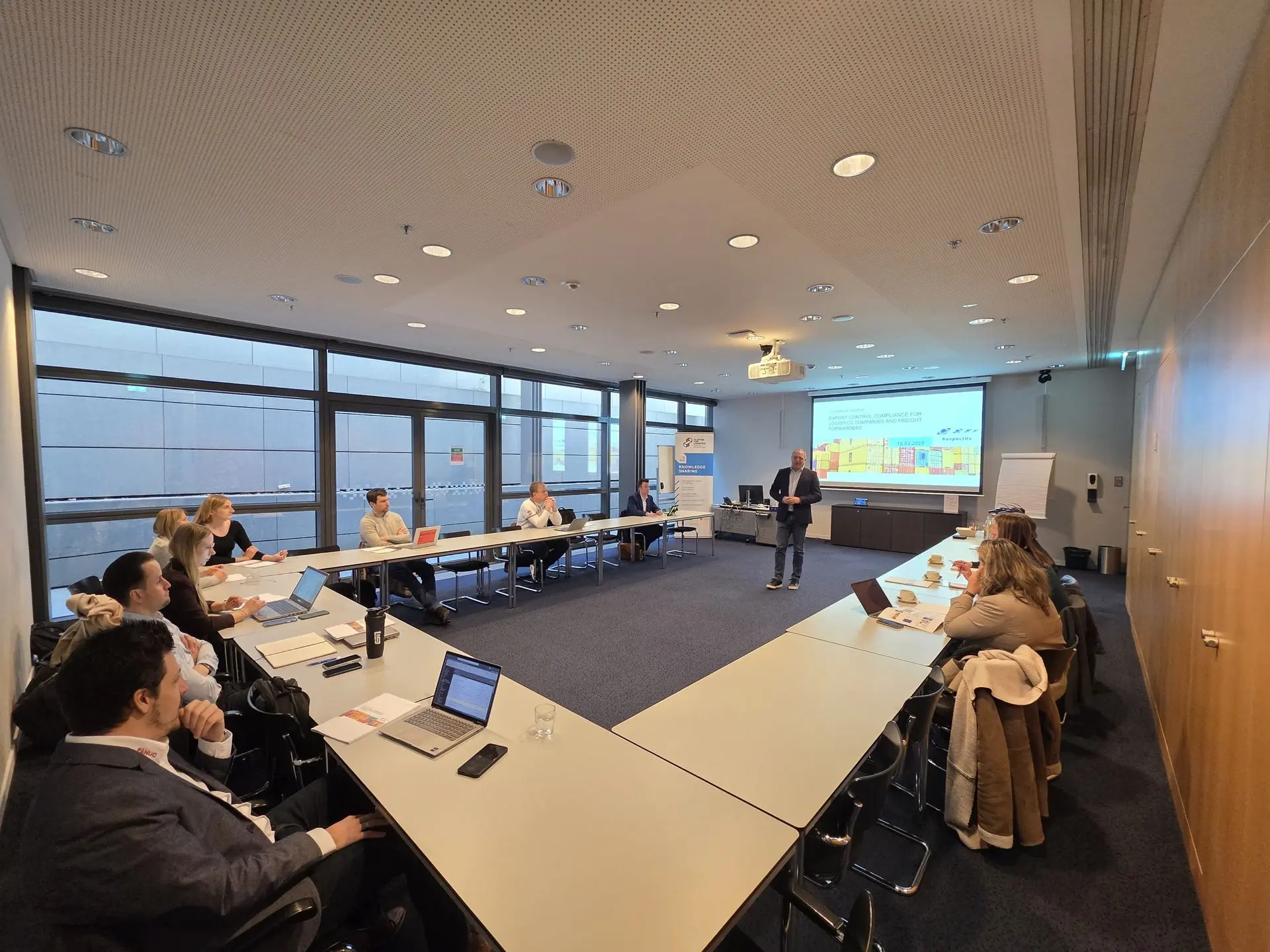Yesterday, we had the opportunity to participate in the Export Control Compliance Workshop: Risk Assessment Framework for Logistics Companies, organized by Cluster for Logistics Luxembourg in collaboration with RespectUs. It was an insightful full-day session dedicated to equipping freight forwarders, logistics operators, compliance officers, and operational staff with the necessary tools to navigate the complex landscape of export control regulations.
Why Export Control Compliance Matters
In today’s global trade environment, ensuring compliance with export control regulations is more critical than ever.
From regulatory frameworks such as EAR, ITAR, and EU Dual-Use Regulation to managing operational and geographic risks, companies in the logistics sector must stay ahead of evolving compliance challenges.
Key Takeaways from the Workshop
1. Laying the Foundation
The session began with a deep dive into export control regulations, recent enforcement trends, and specific obligations for logistics providers. A major focus was on understanding responsibilities in the supply chain, liability exposure, and common pitfalls.
2. Risk Assessment Framework
A structured approach to identifying, assessing, and mitigating risks was discussed, covering:
✅ Customer Screening – Addressing risks of inadequate due diligence and fraudulent organizations.
✅ Product Classification – Avoiding misclassification and verification gaps.
✅ Documentation & Declarations – Ensuring accuracy to prevent compliance breaches.
✅ Geographic Risks – Understanding restrictions related to sanctioned countries, transshipment points, and complex routing structures.
✅ Process Risks – Strengthening internal controls and staff training to mitigate procedural errors.
3. Interactive Risk Assessment Exercise
Participants engaged in a hands-on risk mapping exercise, case studies, and group discussions to apply their knowledge and share best practices.
4. Risk Mitigation Strategies
The workshop highlighted the importance of technology solutions, such as screening tools, audit trail maintenance, and documentation management, alongside process implementation strategies like Standard Operating Procedures (SOPs), escalation processes, and contractual safeguards.
5. Action Planning for Compliance Success
The final segment focused on developing risk assessment templates, prioritizing actions, allocating resources, and defining success metrics.
Workshop Deliverables
Attendees walked away with practical tools, including a Risk Assessment Matrix, Action Plan Template, and Red Flags Checklist, which will support ongoing compliance efforts.
Looking Ahead
With the ever-changing regulatory landscape, staying compliant requires continuous learning, implementation of best practices, and leveraging technology-driven solutions. This workshop reinforced the importance of proactive compliance management to minimize risks and maintain operational integrity in logistics.
A special thanks to RespectUs, particularly Patrick Goergen and the Cluster for Logistics Luxembourg for organizing this valuable session.
Are you facing export compliance challenges in your logistics operations?
Let’s connect and share insights!
#Logistics #Compliance #ExportControl #RiskManagement #ClusterForLogistics #RespectUs


